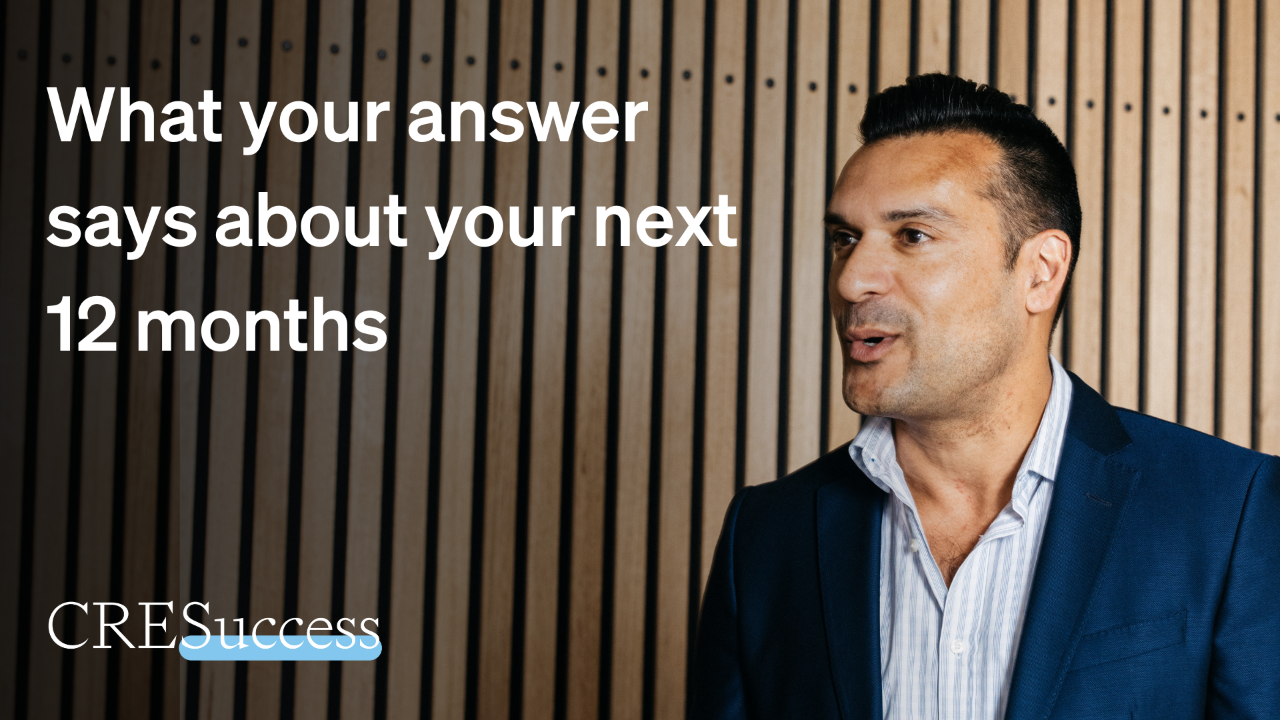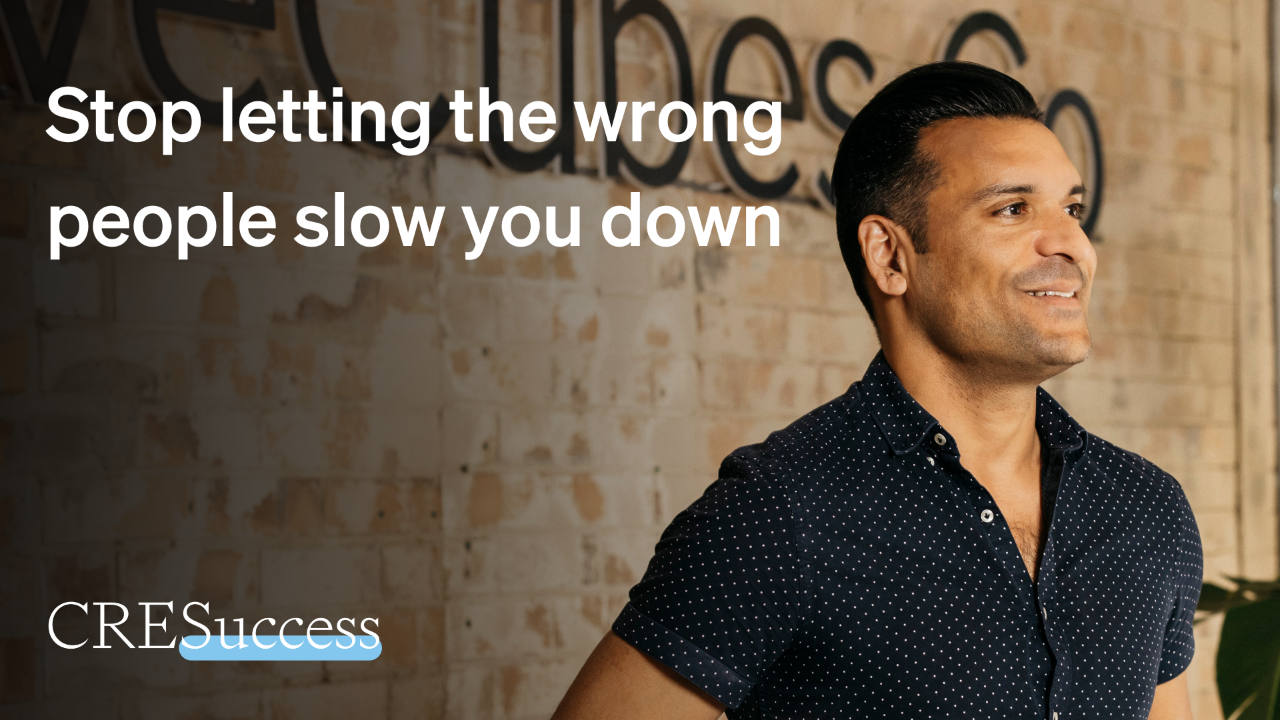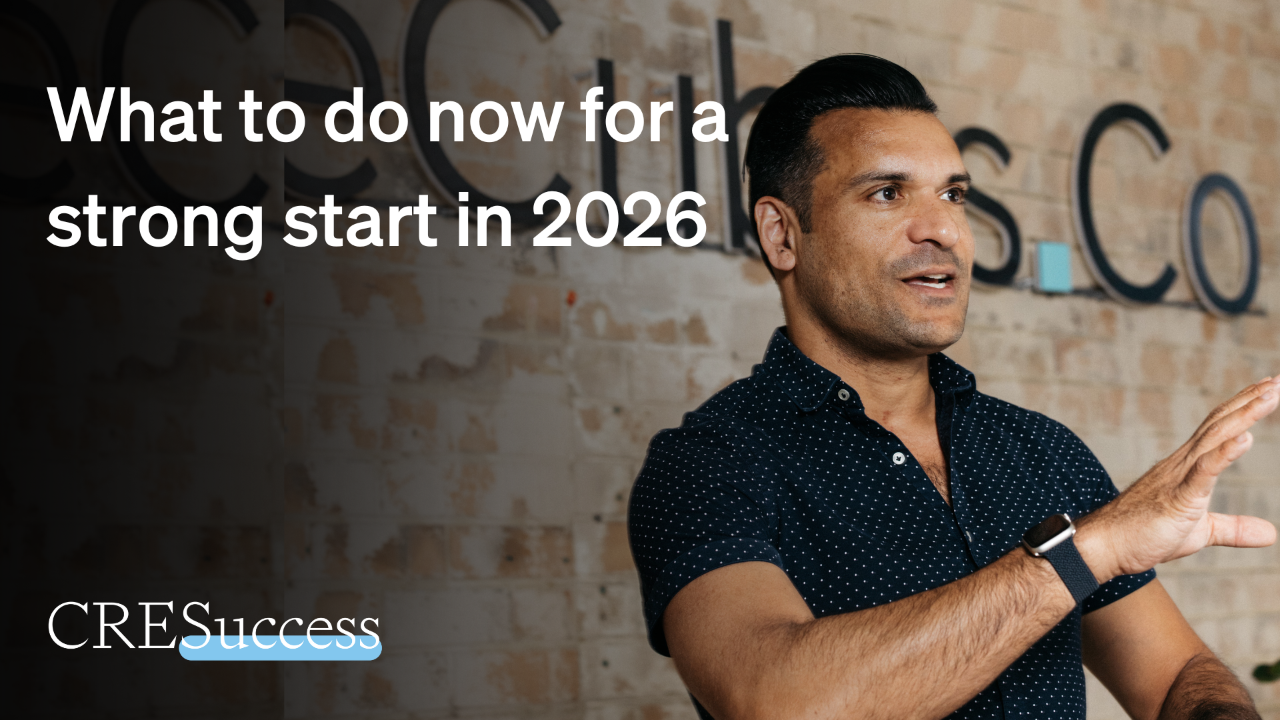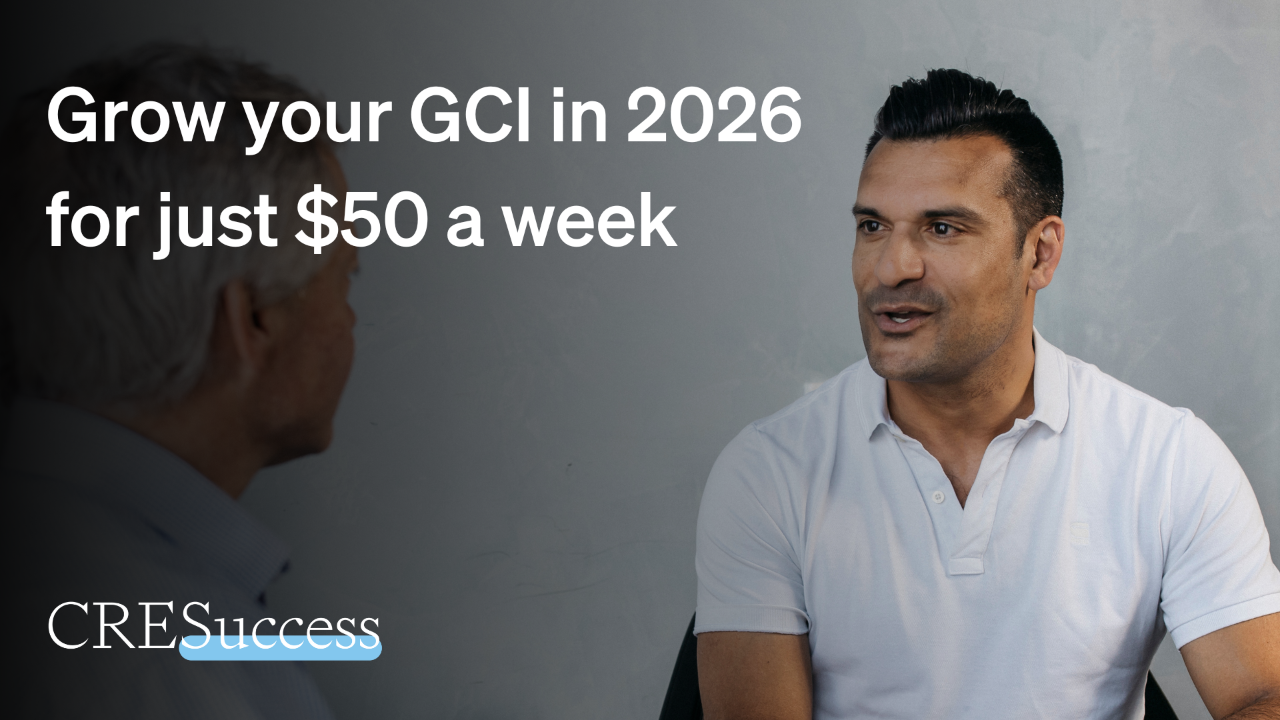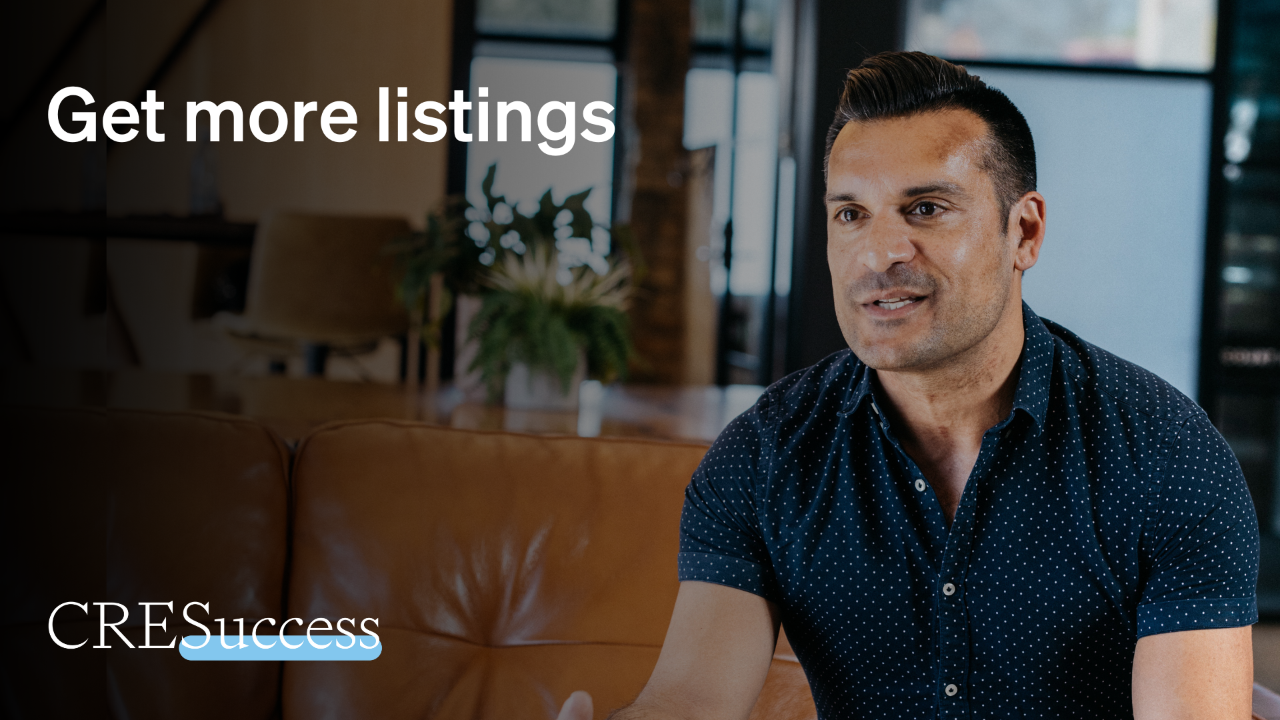Your beliefs shape the actions you take and the results you get
Nov 30, 2023
More than a decade ago, I learned from Brian Tracy (the first personal development expert I followed) that I am responsible for everything that happens in my life.
More recently, I heard that your business is a reflection of you – and that your professional challenges are often just personal struggles showing up in your business.
The life you have, and the leader you are, is completely up to you.
Some people choose to push against these statements or seek to prove them untrue.
Others see the amazing personal power that comes from accepting these principles in your life.
Your beliefs shape the actions you take; your actions create the results that you get. Isn’t that true?
To learn why you are your business, join me for episode 167 of Commercial Real Estate Leadership.
Episode transcript:
I don't know if you've heard this before, but there's a saying that your business is a reflection of you.
And the professional struggles that you face are often just your personal challenges showing up in your business.
And how you show up in your personal relationships will be reflected in your business.
And how you take care of your personal well-being will also be reflected in your business.
And your personal relationships and your well-being are often just a product of your thoughts and beliefs.
So, I want to talk to you about some ways that you can shift those thoughts and beliefs, not only for yourself, but also for members of your team.
So, you and the people in your team are equipped to face your personal struggles, but also achieve the professional success that you all desire.
This is episode 167 of commercial real estate leadership. Hey, I'm Darren Krakowiak.
And I've created a guide for leaders on commercial real estate business growth. It's called 'Multiplied Growth'.
I've talked about it a few times before on the show, so I won't give you the whole spiel today, except to say that if you haven't downloaded it yet, grab your copy now at cresuccess.co/growth
This could open your mind up to the possibilities of how much your business could grow.
Because in today's episode, I want to talk about mindset and personal and professional development and beliefs.
Now I probably got more into this used to be called 'Self-help' in the 90s, which was kind of like a dirty word.
But it's personal and professional development, over the last I reckon four or five years is when I've been more interested in it.
But it was something that I was open to before, that even though I think I had some incongruency in my life, I did have at least some benefit to help me get further and perhaps some of that incongruency would have allowed otherwise by taking on the idea of personal responsibility.
So, I learned that from Brian Tracy. Pretty sure I've talked about in the podcast before and how there's one video that still sticks in my head where he talks about, 'I am responsible, I am responsible.'
And what that really means to stop blaming others and to take control and responsibility and ownership of everything that's going on in your life.
And another book that I read more recently, which I want to make the focus of today's episode is a book by Weldon Long.
And it's called 'The Power of Consistency'.
And this is prosperity mindset training. And you might call that the law of attraction, you might call that vibration.
Now for some people that is not really in touch with reality, it seems like illogical.
But the way that Weldon Long puts it in his book, 'The Power of consistency,' I think is much more transferable to those of us who don't meditate and perhaps are a little bit more, if you're like grounded in in concrete reality.
So how do you control your thoughts and beliefs? In the book, Weldon Long talks about your mind as a box.
And inside this box is a collection of ideas that had been put in there throughout your life.
And if you think of a box, which is full of pieces of paper with things written down, the deeper you go into this box, the more you'll find beliefs that perhaps you don't actually think about that much, but are still in there and driving the way that you act.
And they can serve to be limiting beliefs, the beliefs that are inside your head that no longer serve you.
They're outdated. They're often provably untrue, but they're still they're driving the way that you actually act, right?
Because your thoughts and beliefs drive your actions. And that therefore determines your results as he talks about in the book.
Now, if you believe that, that's probably not consistent with being a high performer in an industry, like commercial real estate.
And an example of this could be perhaps one that your parents told you like 'money is the root of all evil'.
You might say, "Oh, come on, just because I was told that as a kid doesn't mean that I don't have the capacity to earn a lot of money."
Well, if you believe money is the root of all evil, and you don't believe you're an evil person, then that might have some impact on your ability to earn more money, so it could be worth challenging that belief.
Now, I think you have to overcome some limiting beliefs that hinder your ability to perform if you you're going to be a really high performer in this industry, if you are going to be somebody who is a rainmaker.
And the chances are that if you're a leader, that before you were a leader, you were someone who was a high performer.
So perhaps, if you're listening to this now, you have already done some work in this area, consciously or subconsciously, to remove some of those limiting beliefs.
And that has allowed you to be somebody who can perform at a high level.
But what I do see sometimes is individuals who then move into leadership positions haven't also gotten rid of some of those limiting beliefs.
And that is stopping them from being the transformational leader that they can possibly be.
They've got the potential to do that, but it's beliefs in their head about, "Well, why should somebody listened to me? Are people going to follow me?", or whatever it is for them that is stopping them from stepping up and being the leader that their business needs, and that their people want, and that they also probably do want to be.
So, if you've made progress in this area, as a leader, or as an individual, and you're making progress in this area, as a leader, I want you to remember that you've got people in your team who are perhaps a little bit further behind on this journey.
And as you deal with people inside your business, I think it's worth remembering that they probably have some thoughts and beliefs that might be impacting their performance.
And I think, first of all, recognizing that shows that you have some empathy and compassion as a leader.
But also, if you are in a leadership role, I think you've got the capacity to do something about that.
You have a level of influence, where things that you say, and things that you do can result in people's beliefs being shifted.
So, you can actually put new ideas in their box, or you can challenge the ideas that are in their box, and perhaps those ideas will come out.
And then there's one less limiting belief that is stopping somebody from reaching their true potential.
Now, of course, there's a limit to how much you can change because personal responsibility is all part of this.
But one thing that you can do, as a leader is recognize that your words do reverberate more than others, people will put more weight on what you say because of the position that you're in.
And therefore, we can make sure that the actions that we take and the things that we're saying, are only contributing positively to the thoughts and beliefs that other people have.
And the benefit for your business will be greater innovation in the way things are done. It will be improved client relationships due to how people see themselves and others. And also, well, more business growth because people have more belief in their own potential.
Now, if what I've just told you sounds really difficult, like literally changing what is going on inside people's minds, it doesn't need to be that difficult.
So let me make it simpler. You can do what I just done over the last five minutes.
You can share stories and concepts from a book that you have read. And that means you don't have to come up with these frameworks on your own.
You can just share things that you've learned that have helped you and let people know how and why it helped you and then guide them towards perhaps that book.
Or perhaps the fact that they can just see that you've made some progress will result in them seeking out some resources that might help them.
And better yet, if you notice that there is somebody who really sort of latches on to what you're saying, and you think that they're really buying into the idea, then you've got the opportunity, I think, to maybe go and buy that person the book.
And say, "Hey, here's the book I was talking about the other day. I noticed that you seemed really interested in it. I thought that this might be a good gift for you."
I buy books from my clients quite often. Some clients don't like reading, which is one of those things and keep in mind that some people prefer to listen, so audiobooks might be better for them.
But if you get through just to one person, when you share a story like this, that can have a transformational impact on them.
And that means that you're being a transformational leader, which perhaps might not be the way that you see yourself right now.
So, what I'm going to do is an episode before the end of this year, where I'm going to recommend some more books.
I've done previously some episodes in the last two years, episode 118 and episode 67, where I've listed some books for leaders and for commercial real estate professionals that I recommend reading.
You can check out that list of books at cresuccess.co/books. I'll put that link in the show notes.
So, there's about 10 books there at the moment and by the end of this year there'll be however many more I talk about in an upcoming episode.
That book I've talked about today, by the way, 'The Power of Consistency' by Weldon Long is in that list. So, I've talked about it before.
And you know as we come up to the end of the year, recommended reading is a really good thing to be talking about because a lot of people either set the new year's resolution that "I'm going to read more books" or they say, "This summer I'm going to read it."
So now is the time to be doing this if you can.
And I guess the final thing I want to say is that, you know, personal growth and the evolution of your business. And your leadership is an ongoing process.
There's no endpoint, there's no final destination. It's just a habit that we commit to and that we keep going on with.
And I think the message I want to get to you today is that you can help others start this journey by being an advocate for love, lifelong learning, and by sharing some of the benefits that it's brought to you.
That is our episode for today. Thank you so much for listening. I will speak to you soon.



